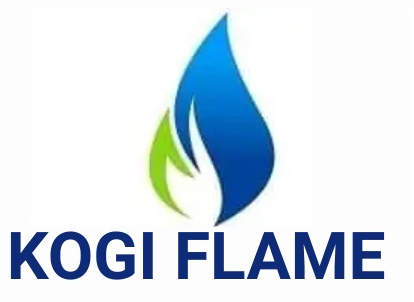Notice: Trying to get property 'post_excerpt' of non-object in /home/kogiflam/public_html/wp-content/themes/morenews/single.php on line 55

By Dr. Tom Ohikere
Taxation is fundamental to sustainable development: it supports the basic functions of an effective state and sets the context for economic growth. However, there is another role for taxation that is often overlooked – as a catalyst for more responsive and accountable governments, and for expanding state capacity.
In view of this Dr. Tom Ohikere, a two time Commissioner Of Information, Kogi State writes, Tax evasion is unquestionably demoralizing government’s capacity, it kills government morale, deprives her of the money needed to carry out laws and initiatives, reduces the effectiveness of government and increases budget deficits and must not be treated with levity if we truly love our state we must pay our tax.
It is quite unfortunate that upon the veritable opportunities in Kogi state, its domestic resource mobilisation or internal revenue generation is still less than 15% of the total money that comes to the state as compared to other states.
This is because citizens and residents, and the business owners are evading from paying their taxes which is a major source of government revenue and this has kept Kogi state in redundancy despite all its potentials.
I wholly commends the efforts of the present Kogi state administration of Governor Yahaya Bello and his arsenals for reviving the economy of the state in such a way that it has never happen before in the history of the state.
There is need for citizens and residents to support this efforts by paying their taxes so that together we can to raise the resources needed to deliver essential services. And this will give impetus for accountability between citizens and the state, thereby helping to build effective states.
At present, there are huge gaps in tax compliance – particularly by national elites and the informal business sector, and in the areas of personal income taxes and natural resources – severely undermine the legitimacy of tax systems. Patchy compliance undermines the belief that others are paying their own, that taxpayers share a common set of interests and that government can be trusted, all of which make collective tax bargaining much less likely. While it will thus be important to tax the informal sector, the consistent taxation of elites is a more pressing, albeit more politically challenging and objective in some states.
The importance of Taxpayers Compliance can never be overemphasized even though most tax reform agenda has so far mainly focused on increasing domestic resources, little attention has been paid to the wider role of taxation in building effective citizen-state relations. Establishing an effective tax bargain involving civil society and business associations is critical for increasing tax compliance and clarifying the links between tax and expenditure.
I will however advise the Kogi state government while advancing the cause of tax enhancement in the state to do so by:
Improving public awareness, transparency and taxpayer services: Awareness and transparency are basic requirements for building public engagement and trust; without some degree of both, taxation is likely to be characterised by conflict rather than co-operation. Citizens must be aware of the taxes they are paying and be educated about the system of taxation and budgeting, while government must be transparent about tax collection and public spending. At the local level transparency can be achieved by publicising revenue collection and its links to public spending, and by engaging citizens directly in budgeting, revenue raising and assessment processes. At the national level governments can do much more to share revenue information, transparently estimate compliance and revenue performance and more closely monitor tax incentives and their costs. Both levels should consider the use of well-designed tax earmarking to strengthen the links between taxes and what they are spent on.
Broadening and improving direct taxation: Improving direct taxation would increase equity in taxation and increase the visibility of taxes. This is likely to increase awareness, enhance trust amongst taxpayers and enhance trust between taxpayers and the government, all of which are likely to make public engagement and tax bargaining more likely. Property taxes are a particularly politically and administratively difficult issue but deserve renewed attention as part of a governance enhancing agenda.
Strengthening civil society engagement with tax issues: Tax bargaining requires a process of “constructive contestation”: taxpayers must be organised to make demands on government, while both sides must be in a position to reach an inclusive tax bargain, rather than dispensing narrow privileges or engaging in endless conflict. Governments and development partners can help to promote such “constructive contestation” by working to strengthen the involvement of business associations and, more ambitiously, by working with civil society to build the awareness and organisation of taxpayers. Civil society can contribute to political engagement and advance the broader goals of improving transparency, taxpayer awareness and education.







